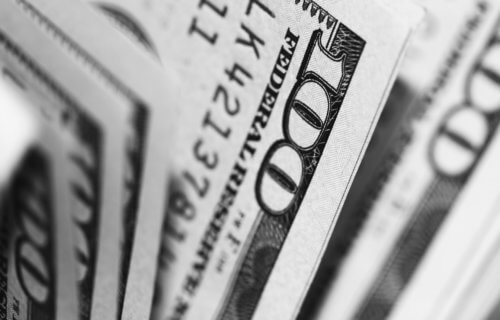LONDON — Good news if you’ve been told you’re either “very attractive” or “very ugly” — there’s a decent chance you earn more money than those around you, according to a study.
Researchers at the London School of Economics and the University of Massachusetts have been able to somewhat dispel a pervasive theory regarding attractiveness, commonly referred to as a “beauty premium” or the “ugliness penalty.” Previous studies have found that those who are good-looking command higher wages in their employment. This phenomenon has been seen in a wide range of professions, from business to law.
It turns out that people aren’t necessarily discriminated against because of their appearance, the researchers determined.
For their analysis, Satoshi Kanazawa and Mary Still, the study’s co-authors, examined a dataset pulled from a popular survey looking at adolescents, the National Longitudinal Survey of Adolescent Health, also known as “Add Health.” The survey is notable in that it measures physical attractiveness for a given individual in four installments over a period of 13 years, doing so on a five-point scale.
In their analysis, Kanazawa and Still write that while more attractive individuals often out-earned their less attractive peers, this was often due to the presence of other qualities. Those qualities being smarter, healthier, calmer, more extroverted, and more conscientious.
“Physically more attractive workers may earn more, not necessarily because they are more beautiful, but because they are healthier, more intelligent, and have better personality traits conducive to higher earnings,” says Kanazawa in a statement.
Attractiveness can be beneficial either way, for some
Interestingly, those who were categorized by Add Health as being “very unattractive” were also higher earners. They always outearned those who were deemed “merely unattractive,” and in some cases made more money than individuals of average and above-average attractiveness.
The finding that those on the far end of either side of the beauty spectrum make a better living was likely skipped over in previous studies because individuals less attractive than average were all lumped into one category.
In addition, few studies have examined all of the combined factors that Kanazawa and Still took into account.
The study is published in the Journal of Business and Psychology.

That would not be the case if you were a barmaid.
This really depends on your occupation. Cover Model? Ugly Cover Model…… I bet who makes more out of those two…. Cindy Crawford made a good living out of being beautiful.
How did they get people for the study? “Wanted: ugly people… and you know who you are.”?
.
Ugly people may be successful but I don’t listen to them because they don’t know what they are talking about.
I get all my advice from pretty Hollywood actors.
.
I also spent a lot on a study and concluded that beauty is in the eye of the beholder.
Look at Eric Schitt of Google fame for example. Very successful – yet disgusting to look at. Mark Cuban, how bout those ears. Bill Gates, Warren Buffet, the list goes on and on and on.
True, if you have a job opening and there are two people with equal qualifications do you pick the ugliest or prettiest? Sure… people like looking at ugly people all day.
So what is the point? That no matter if you look good or bad nobody likes a lazy dumb ass?
Not in hollywood…
Great news for Moocher Obama. That Transsexual is as ugly as his husband.
The reason why being ugly is better for your bank account if you are a man is that you’ll never be able to attract a woman and therefore won’t have to worry about whether she only wants you for your bank account, nor will you ever have to worry about being taken to the cleaners when, not if, she decides it’s time to cash out and file for divorce.
I’m an ugly guy and I can confirm that what I’m saying is 100% true.